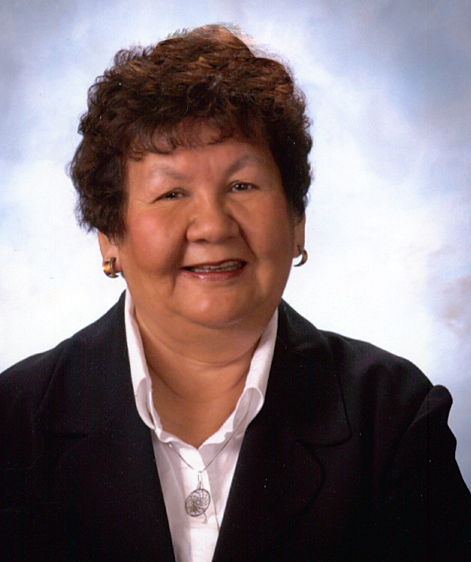An agency that could draft appropriate school curricula
M’CHIGEENG— A week ago, the Truth and Reconciliation Commission ( TRC ), which has been examining the legacy of the residential school program for First Nation children, made public its list of recommendations.
These dealt with a wide variety of topics, but there is one that the Commission felt will be fundamental to future generations’ understanding of the relationship between Canada’s aboriginal population and successive federal governments during Canada’s first century. This recommendation calls for making “age appropriate school curricula addressing residential schools, treaties and aboriginal peoples’ historical and contemporary contributions to Canada a mandatory requirement for Kindergarten to Grade 12 students.”
The recommendation is addressed to federal, provincial and territorial governments who are urged to collaborate and consult with First Nation survivors of residential schools and First Nation educators and leaders on the issue.
Education is a provincial jurisdiction, the TRC recognizes, so provinces and territories are urged to “establish senior-level positions in government at the assistant deputy minister (or higher) level who would be dedicated to aboriginal content in education.” A related recommendation suggests that teacher-training programs should include staff whose specific task it would be to instruct potential teachers on how to integrate aboriginal knowledge and teaching methods into classrooms.
Grace Fox and her husband Joe Fox of M’Chigeeng attended the TRC national event in Ottawa a week ago and were there when Justice Murray Sinclair, chief commissioner, delivered the 94 recommendations the Commission had winnowed from discussions with survivors over the past seven years.

Ms. Fox has a unique perspective on the issue, in particular as it pertains to the recommendation on educating young Canadians about the past relationship between First Nations peoples and the governments of Canada.
One way or another, she has been involved in education virtually her entire life, up to and including the present.
As a child of six, she was sent to St. Joseph School for Girls at Spanish from her home community of Wikwemikong. Almost all of her elementary and high school education was presented to her there over the next 10 years.
She went to teachers’ college, taught elementary school in Espanola, Sudbury and M’Chigeeng and then took special courses to allow her to become a guidance counselor at Manitoulin Secondary School when it opened in 1969.
In the late 1990s, she served as Director of Education for the Wikwemikong Board of Education, and for the past decade Ms. Fox has served as the trustee responsible for First Nation students and their communities on the Rainbow District School Board.
Ms. Fox was re-confirmed in her trustee’s role last fall and has done it all in education. Therefore, The Expositor spoke to her following the TRC announcement on how she felt the specific recommendation regarding the mandatory inclusion of aboriginal history throughout publicly funded schools’ curricula could or would be carried out and what obstacles this recommendation would have to overcome.
Ms. Fox said, “We’re already hearing from educational authorities, ‘Where do you expect us to put this into the curriculum?’” The question addresses the practical issue of already crowded curricula as more and more topics are being included at every grade level.
But, having said that, she observed that, “The Ontario government has to take ownership of all that has happened (as do other provinces and territories).”
“The term ‘cultural genocide’ has been named, so it’s now out there, and we have had this great awakening through the Truth and Reconciliation Commission process,” Ms. Fox observed. “To put it simply, my concern as a professional educator is the lack of material about and by Native people available to educators.”
She mused that, “It has been a hard battle, and I don’t think it often occurred to us, as teachers, to speak our own ideas on these issues. It was always, ‘the Ministry says…’.”
So now, following Justice Sinclair’s recommendation on the topic, one issue is how, to shift ministries of education (like Ontario’s) so that they include First Nation content in the 12 elementary and secondary instructional years (plus JK and Kindergarten). Another is whether there is the political will to do so.
Ms. Fox noted that the provincial ministries of education own the curriculum they require teachers in their jurisdictions to teach.
“What we need,” she stated, “is a First Nations Institute dedicated to developing Native curriculum. I see the need for that today, for if Native children, and all children, are going to know how these things in the past have affected Canada, then the story must be told methodically and at grade-specific levels.”
She applauded Justice Murray Sinclair’s recommendations and research on this topic. “It was a very powerful day,” she observed. “You think back about your own children and grandchildren not knowing their history or language, and it makes them feel less a part of the country.”
She noted wryly that, “That’s certainly not the way other cultures and nationalities operate in this country.”
We know all about the terrible holocaust in Europe and the Nazis’ hatred for the Jewish population and about the Armenian tragedy a century ago in Turkey, “But the saddest part is that there was a concerted effort, by the Canadian government, to take their culture away from a particular group of children. That’s the hard part, and it’s the most difficult to take in, but it’s a part of our country’s history, and it should be told in schools.”
Ms. Fox and her husband are, indeed, both residential school survivors. “I pride myself for keeping my language,” she says. “Joe and I speak it at home.”
She remembers, though, that she arrived at the girls’ residential school at Spanish as a child of six with no English. “I remember going to confession to tell the priest whatever little sins I had, and I told him in Ojibwe.”
The priest told her, in English, that only a confession in English was valid, implying that God wouldn’t hear an Ojibwe language confession.
Ms. Fox said she felt Assembly of First Nations (AFN) Grand Chief Perry Bellegarde “got it right” when he stated last week that getting rid of racist attitudes would be an excellent first step towards national reconciliation.
She quoted his statement where he said, “I urge everybody across Canada to rid themselves of things like the misconceptions about indigenous peoples, the discriminatory, racist attitudes that may exist, to move them out so that new things may come in.”
“I noticed,” she observed, “that when we were in Ottawa last week, and maybe because it was because the Truth and Reconciliation Commission announcements and rally were going on and were in the news, but there seemed to be a different attitude, as Chief Bellegarde had asked for.”
She said she is aware of what the grand chief was alluding to and the different attitudes she sensed in Ottawa because “even in my role as a First Nations trustee, representing First Nations students, some people (not other trustees) give me the impression that they think my role is a lesser one. I’m appointed (not elected), and I represent the Native children.”




